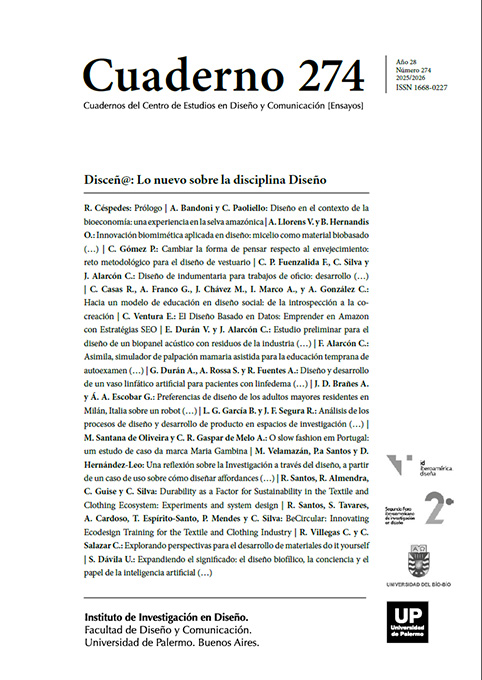O slow fashion em Portugal: um estudo de caso da marca Maria Gambina
Abstract
Promoting social presence, social interactions, and group regulation is one of the most recent and active lines of research in computer-supported collaborative learning (CSCL).
References
Avry, S., Molinari, G., Bétrancourt, M., & Chanel, G. (2020). Sharing Emotions Contributes to Regulating Collaborative Intentions in Group Problem-Solving. Frontiers in Psychology, 11. https://doi.org/10.3389/fpsyg.2020.01160
Bakhtiar, A., Webster, E. A., & Hadwin, A. F. (2018). Regulation and socio-emotional interactions in a positive and a negative group climate. Metacognition and Learning, 13(1), 57–90. https://doi.org/10.1007/s11409-017-9178-x
Bell, P. (2004). On the theoretical breadth of design-based research in education. Educational psychologist, 39(4), 243-253.
Los autores/as que publiquen en esta revista ceden los derechos de autor y de publicación a "Cuadernos del Centro de Estudios de Diseño y Comunicación", Aceptando el registro de su trabajo bajo una licencia de atribución de Creative Commons, que permite a terceros utilizar lo publicado siempre que de el crédito pertinente a los autores y a esta revista.


